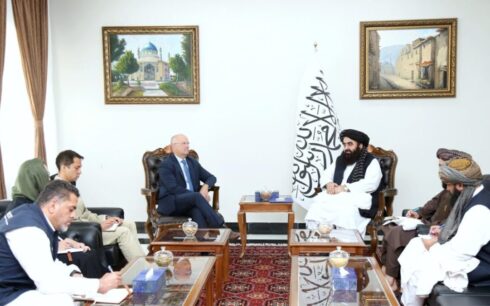The Taliban’s Ministry of Justice announced Wednesday that it is nearing completion of a new legal code, with 95 percent of the drafting process finalized. The laws, described as “subsidiary legislation,” will take effect once formally ratified by the Taliban’s reclusive leader, Hibatullah Akhundzada.
According to Taliban officials, the legal framework has been developed based on the Quran, the Sunnah — the traditions of the Prophet Muhammad — and the Hanafi school of Islamic jurisprudence. The drafting process has involved both religious clerics and legal scholars appointed by the Taliban.
The announcement marks a pivotal step in the Taliban’s attempt to consolidate their system of governance nearly four years after they dissolved the former Afghan Constitution and nullified all laws passed by the previous government. Since regaining control in August 2021, the Taliban have ruled without a formal constitutional structure, raising alarm among legal experts and international rights monitors over the erosion of rule-of-law safeguards.
Notably absent from the ministry’s remarks was any mention of reinstating a constitution or enshrining legal protections beyond religious interpretations. Officials emphasized that all future governance would be grounded in what they define as Islamic law.
Critics argue the initiative is less about codifying justice and more about institutionalizing repression. “The Taliban are using religion as a tool to impose their personal and political agenda,” said Farooq Aleem, a university professor in Kabul. “Many of these decrees contradict both Islamic principles and international human rights standards.”
A central feature of the Taliban’s legal apparatus is the “Promotion of Virtue and Prevention of Vice” law, which Akhundzada ratified in July 2024. Regarded by some as a de facto constitution, the law grants broad powers to Taliban religious enforcers and formalizes a sweeping range of social controls.
Among its provisions are bans on women’s voices in public broadcasts, strict limitations on female mobility and access to public spaces, and significant authority granted to so-called morality police to enforce dress codes, behavior, and public conduct. Violations carry penalties, though legal processes and protections remain opaque.
Residents in Kabul describe life under the law as increasingly suffocating. “Since the Taliban came, joy and life have been taken from us,” said one woman. “We live under growing oppression with no hope left.”
Another resident described the new system as a mechanism for domination, not justice. “The Taliban impose whatever they want,” he said. “The people’s will has no value.”
Over the past three years, the Taliban have introduced a series of decrees that have progressively stripped Afghan women and girls of basic freedoms. These include bans on secondary and university education, restrictions on employment in government and international agencies, limitations on travel and clothing, and intensified pressure on journalists and the media.
Human rights groups say the codification of these restrictions under the banner of religious legitimacy represents a systematic dismantling of civil liberties. “This is not lawmaking,” said one Afghan advocate. “It’s the formalization of repression.”




